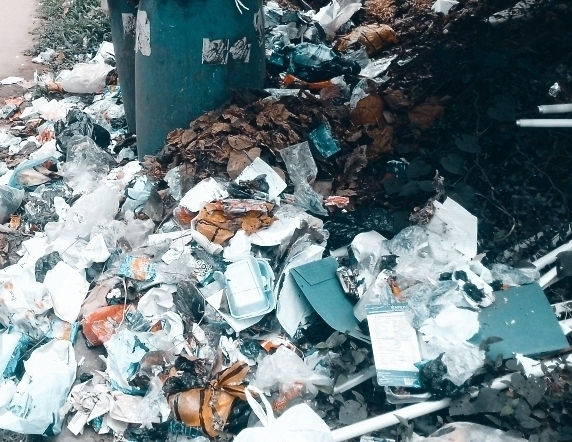Broken Goals: Unveiling Buhari’s Empty Promises to Nigerian Sports

By: Joshua Oyetoro
In the build-up to the 2015 presidential election, APC’s presidential flag-bearer, Muhammadu Buhari, had a manifesto that outlined his plans to move Nigeria forward at all levels and sectors. Research into his manifesto highlighted concrete promises for the nation’s sports sector. The establishment of world-class sports academies, revival and restructuring of the Nigerian national leagues, early talent identification and nurturing of sporting talents, development of community and school sports infrastructure, and the revival of school-based sports competitions were all part of his plans for the Nigerian sports sector. With these and many other promises, Buhari went on to win the 2015 presidential election. He was re-elected for a second term in 2019 and eventually handed over power upon completing his tenure on May 29, 2023. Without any iota of political bias, this article expressly attempts to critique the successes of this manifesto in Nigeria’s sports sector.
Before the assumption of power, Nigeria’s sports system was plagued by inconsistency and many irregularities. Lack of funding and neglect from the government, poor state of sporting facilities across states in the country, and a heavy outflow of Nigerian athletes to other parts of the world for greener pastures continually hindered the growth and competitiveness of Nigerian sports. Buhari’s promises therefore gave the impression of a long-awaited messiah for Nigerians, and hopes were high that he was going to transform this sector. Sadly, after relinquishing power two years ago, questions have continuously been asked by concerned Nigerians about his administration’s performance as promised in his manifesto. When Samuel Goldwyn said that “a verbal contract isn’t worth the paper it’s written on,” he meant to emphasize the importance of keeping promises. For proper analysis, it is necessary to highlight each of the promises in his manifesto.
Establishment of World-class Sports Academies

Spain, France, and England have continuously enjoyed a strong sports foundation because of the heritage of harmonised grassroots academies that have been deliberately structured into their national sporting culture. Spain’s ‘La Masia’, France’s ‘Clairefontaine’, and England’s FA Academy have continually remained the nation’s ecosystem that feeds talents into professional leagues and the national team. These structures create control, discipline, and sustainability in athletes’ growth. Nigeria’s sports sector has clamoured to have recognized national established sports academies that would nurture and breed talents.
Buhari’s manifesto addressed this and assured Nigerians of his plan to ensure that “world-class sports academies” would be established to identify, nurture, and support brooding talents across the country. To ensure the actualisation of this promise, the Buhari-led administration created the ‘Adopt-a-pitch/Athlete/Facility’ schemes. This involved public-private partnerships that allowed private organisations to partner with the government in revamping key national stadiums and providing direct funding to athletes. The National Sports Industry policy, which was enacted to brand sports as a commercial sector, was also an action taken by this administration to solve this issue. Sadly, these actions were not only unrealistic but also short-term in nature. The limitations of these proposed solutions therefore made it a continuous struggle for the Nigerian sports sector to grow and develop properly.
Revival and Restructuring of National Leagues

Between 2015 and 2023, the Buhari administration pledged to revitalise the Nigerian sports sector. Yet, the nation’s major sports leagues—football, basketball, athletics, and others—collapsed under mismanagement, funding issues, and neglect from the government.
The Nigerian Professional Football League (NPFL) lost a lucrative thirty-four million dollar TV rights deal, which saw key broadcaster SuperSport exit the league in 2017. Obviously, this had an effect on the league, as it crippled the league’s exposure and reduced revenue generation for the local clubs. Also, the league became ravaged with numerous cases of players’ unpaid salaries, stadium deterioration, and became a launchpad for athletes fleeing to lesser-known foreign leagues.
The Nigerian Basketball Federation (NBBF) suffered a similar fate too. A prolonged leadership crisis stalled the domestic league for nearly four years, thereby forcing many local players to quit. To salvage the situation, Buhari’s government imposed a two-year ban on Nigeria’s participation in international competitions (an action which stripped the D’Tigress of their FIBA World Cup spot). The only known reason for this action was to “revamp the sport from the grassroots.”
During these periods, the Athletes Federation of Nigeria was riddled with crises. Leadership troubles, underfunding, doping scandals, and poor grassroots structures crippled its effectiveness. Issues were further complicated when ten Nigerian athletes were disqualified at the Tokyo 2020 Olympics for failing to meet anti-doping testing requirements. This dealt a great blow to the federation’s credibility.

While Tobi Amusan emerged as the lone bright spot for the AFN, her success stood in stark contrast to the AFN’s failures that grew under Buhari’s government. Nigeria’s continual loss of sporting talents to other countries is a testament to his failed promise to implement early talent identification strategies. His promises to create playgrounds and sports centers in schools and communities were merely words put on paper to set Nigerians in a state of El Dorado. Another promise to revive inter-school sports competitions remained a dream that never saw actualisation.
To whom much is given, much is expected. The Nigerian citizenry gave him their trust and confidence by casting votes in his favour. It was only required of him to have fulfilled his own promises. Constantly, Nigerians are faced with empty promises from these politicians; Buhari’s case was just one out of many.
May his soul continually rest in peace!





